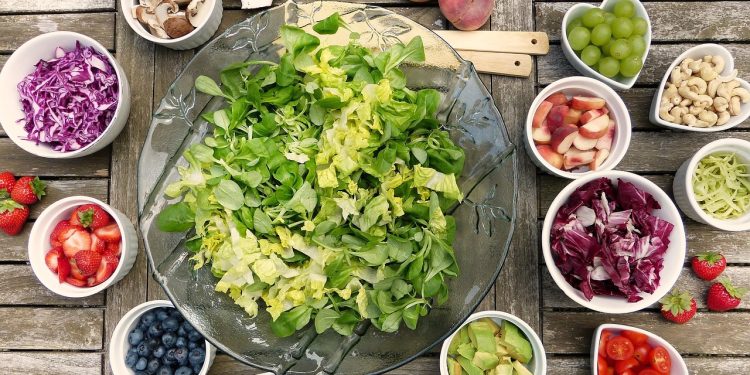Introducing vegetarian and vegan meals to your baby’s diet can be a nourishing and rewarding way to support their growth and development while fostering a love for plant-based foods. A well-planned vegetarian or vegan diet provides all the essential nutrients that your growing child needs, including vitamins, minerals, proteins, and healthy fats. By offering your baby wholesome, nutrient-dense foods, you can create a foundation for healthy eating habits that will last a lifetime. In this essay, we will explore a variety of vegetarian and vegan baby food recipes that are both delicious and easy to make, along with tips to ensure your baby gets all the nutrients they need.
The Benefits of a Vegetarian or Vegan Diet for Babies
Vegetarian and vegan diets for babies are built around fresh fruits, vegetables, whole grains, legumes, nuts, and seeds—foods that are naturally rich in essential nutrients and free from additives or preservatives. Such diets can provide numerous benefits for growing children. For instance, plant-based foods are rich in antioxidants, fiber, and healthy fats that promote growth, improve digestion, and support immune health.
Another benefit of a plant-based diet is that it helps to diversify your baby’s palate early on, making them more likely to enjoy a wide variety of foods as they grow older. Introducing babies to the colors, textures, and flavors of different fruits, vegetables, and grains can lead to more adventurous eating habits and a reduced likelihood of picky eating later in life.
Key Nutrients to Focus on in Plant-Based Diets
When planning a vegetarian or vegan diet for your baby, it is important to focus on key nutrients that are essential for healthy growth and development:
- Protein: Include a variety of protein-rich foods like lentils, beans, quinoa, tofu, and peas to meet your baby’s protein needs.
- Iron: Plant-based sources of iron, such as lentils, beans, quinoa, and leafy greens, should be included in your baby’s diet. Pairing these with vitamin C-rich foods, like citrus fruits or bell peppers, helps improve iron absorption.
- Calcium and Vitamin D: For strong bones, offer calcium-rich foods like tofu, fortified plant-based milk, and leafy greens. If your baby is vegan, consider a vitamin D supplement, as it is primarily found in animal products.
- Omega-3 Fatty Acids: Offer flaxseeds, chia seeds, and walnuts to provide essential omega-3 fatty acids, which are important for brain development.
- Vitamin B12: Vitamin B12 is typically found in animal products, so for vegan babies, it’s important to provide a B12 supplement or fortified foods.
Delicious Vegetarian and Vegan Baby Food Recipes
Below are some nutritious vegetarian and vegan recipes that are ideal for babies and toddlers. These recipes are easy to prepare, flavorful, and packed with essential nutrients to support your child’s growth.
1. Creamy Lentil and Sweet Potato Purée
Lentils are an excellent source of plant-based protein and iron, while sweet potatoes provide a natural sweetness along with vitamins A and C.
- Ingredients: 1/4 cup of red lentils, 1 small sweet potato (peeled and chopped), 1 cup of water.
- Instructions: Rinse the lentils thoroughly. In a pot, combine the lentils, sweet potato, and water. Bring to a boil, then reduce heat and simmer until both the lentils and sweet potato are soft (about 15-20 minutes). Blend until smooth, adding water as needed to reach the desired consistency. This creamy purée is nutritious and easy to digest, making it perfect for babies.
2. Quinoa and Vegetable Mash
Quinoa is a complete protein, containing all nine essential amino acids, while the vegetables provide important vitamins and minerals.
- Ingredients: 1/4 cup quinoa, 1/2 cup chopped vegetables (such as carrots, zucchini, and peas), 1 cup water.
- Instructions: Rinse the quinoa well. Combine the quinoa, vegetables, and water in a pot. Bring to a boil, then reduce heat and simmer until the quinoa is cooked and the vegetables are soft (about 15 minutes). Mash or blend to the desired texture, adding water if needed. This mash is packed with nutrients and can be easily adjusted to suit your baby’s preferences.
3. Banana and Chia Seed Pudding
Chia seeds are rich in omega-3 fatty acids, fiber, and calcium, making them an excellent addition to your baby’s diet.
- Ingredients: 1 ripe banana, 1 tablespoon chia seeds, 1/2 cup plant-based milk (such as almond or oat milk).
- Instructions: Mash the banana in a bowl, then stir in the chia seeds and plant-based milk. Let the mixture sit for about 15-20 minutes until it thickens to a pudding-like consistency. This creamy pudding is perfect for breakfast or as a healthy snack.
4. Spinach and Chickpea Patties
These patties are a great finger food for toddlers and are packed with protein, iron, and fiber from the chickpeas and spinach.
- Ingredients: 1 cup canned chickpeas (drained and rinsed), 1/2 cup fresh spinach, 1/4 cup oats, 1/4 teaspoon cumin.
- Instructions: In a food processor, combine the chickpeas, spinach, oats, and cumin. Blend until the mixture comes together but still has some texture. Form small patties and cook them in a non-stick skillet over medium heat for 2-3 minutes on each side until golden brown. Allow to cool before serving.
5. Apple and Oat Breakfast Bowl
Oats are a great source of fiber and help keep your baby feeling full longer. Apples add natural sweetness and vitamin C.
- Ingredients: 1/4 cup oats, 1/2 apple (peeled and chopped), 1/2 cup water, a pinch of cinnamon.
- Instructions: In a small pot, combine the oats, apple, water, and cinnamon. Cook over medium heat, stirring occasionally, until the oats are soft and the apple is tender (about 10 minutes). Blend or mash to the desired consistency. This breakfast bowl is comforting and full of nutrients.
Tips for Ensuring Balanced Nutrition
- Variety is Key: Offer a variety of fruits, vegetables, grains, legumes, and healthy fats to ensure your baby gets all the nutrients they need. Rotate ingredients regularly to expose your baby to different flavors and textures.
- Pair Iron with Vitamin C: To enhance iron absorption from plant-based foods, pair iron-rich foods with foods high in vitamin C. For example, serve lentils with a side of mashed sweet potato or add a splash of lemon juice to chickpea dishes.
- Watch for Allergies: When introducing new ingredients, especially nuts or soy, be mindful of potential allergic reactions. Introduce one new food at a time and wait a few days before adding another.
- Healthy Fats: Babies need healthy fats for brain development. Include sources like avocado, chia seeds, ground flaxseeds, and nut butters (if there are no allergies).
Making Mealtime Enjoyable
Mealtime should be an enjoyable and stress-free experience for both you and your baby. Here are some tips to make mealtime fun:
- Involve Your Baby: Let your baby watch as you prepare their meals. This helps them become familiar with different foods and the cooking process.
- Serve Finger Foods: As your baby grows, offer finger foods like chickpea patties or soft vegetable sticks to encourage self-feeding and develop fine motor skills.
- Keep Experimenting: Babies’ tastes change frequently, so keep offering a variety of foods even if they initially reject something. Persistence is key to developing a diverse palate.
Nurturing a Love for Plant-Based Foods
Introducing vegetarian and vegan foods to your baby’s diet is a wonderful way to nurture a love for wholesome, plant-based eating. By offering a wide variety of nutrient-dense foods, you are setting the foundation for a healthy relationship with food that will benefit your child for years to come.
Remember that every baby is unique, and their preferences may change over time. Be patient, stay flexible, and enjoy the journey of discovering new flavors and textures together. With these simple and delicious recipes, you can provide your baby with all the nutrients they need to grow and thrive, while also instilling a lifelong appreciation for plant-based eating.












